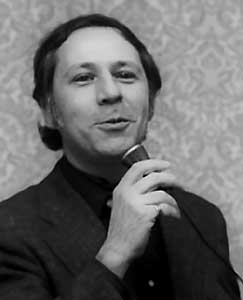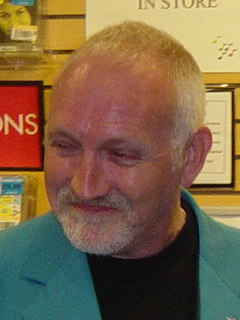A Quote by Annalee Newitz
You've probably heard the stories about how io9 got its name. And maybe you know that io9 co-founder Charlie Jane Anders and I were inspired by Kathy Keeton, whose groundbreaking magazine 'Omni' combined coverage of real science with science fiction. But what you probably don't know is how unlikely it was that io9 ever succeeded at all.
Related Quotes
There is no science in global warming. "Mr. Limbaugh, that's typical of what you! That's the most outrageous statement I've ever heard anybody ever make! No science in global warming?" Do you know how I know there's no science in global warming, folks? Because they tell us a "consensus of scientists" agrees that X. There is no consensus in science.
Science,' said Mr Anders Anders. 'Science, not magic. I told you before: when things are not as they appear to be, it's because they're actually simpler than you think them to be. Things are never as difficult and complicated as folk believe. You'd be surprised just how straightforward and obvious things really are. The secret is in knowing how to look at them the right way.
Science fiction is the most important literature in the history of the world, because it's the history of ideas, the history of our civilization birthing itself. ...Science fiction is central to everything we've ever done, and people who make fun of science fiction writers don't know what they're talking about.
Science fiction is fantasy about issues of science. Science fiction is a subset of fantasy. Fantasy predated it by several millennia. The '30s to the '50s were the golden age of science fiction - this was because, to a large degree, it was at this point that technology and science had exposed its potential without revealing the limitations.
I would say that most of my books are contemporary realistic fiction... a couple, maybe three, fall into the 'historic fiction' category. Science fiction is not a favorite genre of mine, though I have greatly enjoyed some of the work of Ursula LeGuin. I haven't read much science fiction so I don't know other sci-fi authors.





























